Japanese cinema has never tried to imitate Hollywood. He pays special attention to aesthetics, philosophy and the visual range of his creations. Many Japanese films are contemplative and laconic, leaving behind a long-lasting pleasant aftertaste, like after a good wine.
We present to you a selection of the best Japanese films of all time, a list by rating of Kinopoisk, IMDb, The Cinemaholic and other specialized sites. Among them, there are both old and new paintings that clearly demonstrate the best that the Land of the Rising Sun has to offer.
10. Battle Royale (2000)
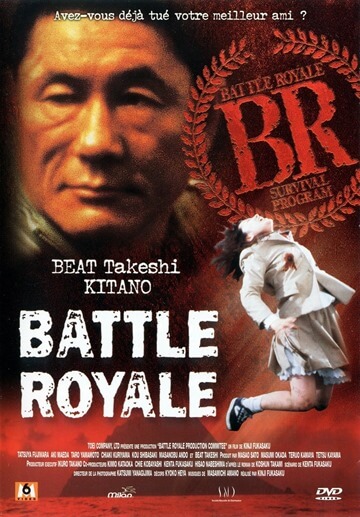 KinoSearch: 7.5
KinoSearch: 7.5
IMDb: 7.6
Genre: fantasy, thriller, drama
Producer: Kinji Fukasaku
Music: Masamichi Amano
Duration: 114 minutes
The story of Susan Collins, filmed in The Hunger Games, is strikingly similar to the last work of the famous Kinji Fukasaku. Although the writer claims that she did not read the dystopian novel by Kosyun Takami, based on which "Royal Battle" was filmed.
As in The Hunger Games, young men in Battle Royale are forced to fight each other to the death. Everything that happens is sanctioned by the government, and at the end of the battle there should be only one crowned winner.
This film is much bloodier than the first part of "The Hunger Games", while the brutal scenes are interspersed with black humor, which makes the action even more surreal and interesting. The result is one of the most violent and iconic Japanese films ever.
9. The taste of tea (2004)
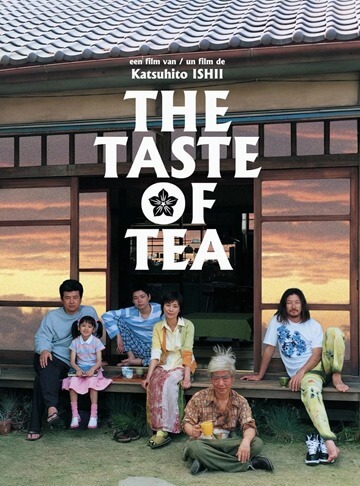 KinoSearch: 7.5
KinoSearch: 7.5
IMDb: 7.7
Genre: fantasy, comedy
Producer: Katsuhito Ishii
Music: Tembo Little
Duration: 143 minutes
Taste of Tea is often described as a surreal version of Ingmar Bergman's film Fanny and Alexander. This is the story of an unusual family living in a typical rural area north of Tokyo.
In fact, there is no plot in the picture, each of the main characters is busy with their own "madness", but this does not prevent them from being funny, touching and enjoying simple human joys.
The award-winning film Taste of Tea at international film festivals is a striking example of visually and emotionally engaging films that many modern Japanese filmmakers are equal to.
8. Nobody Knows (2004)
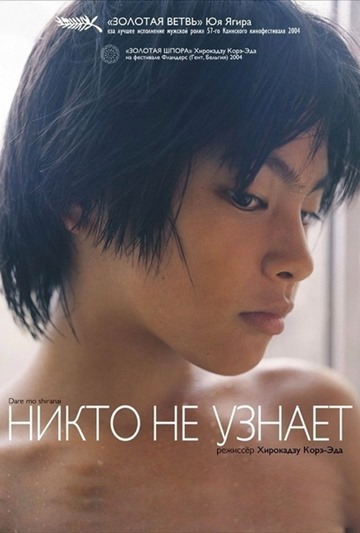 KinoSearch: 7.5
KinoSearch: 7.5
IMDb: 8.1
Genre: drama
Producer: Hirokazu Koreeda
Music: Gontiti
Duration: 141 minutes
One of the most touching Japanese movies is based on real events in 1988. The negligent mother left her four children in a small apartment in Tokyo. And the eldest son Akira, who was only twelve years old, had to take care of his younger brothers and sisters.
The situation was aggravated by the fact that until the mother left, the children never went to school, did not leave the apartment or onto the balcony, and even the existence of three of them, except Akira, was hidden from the landlord. Children are so used to hiding from everyone that no one will know about their existence.
7. Zatoichi (2003)
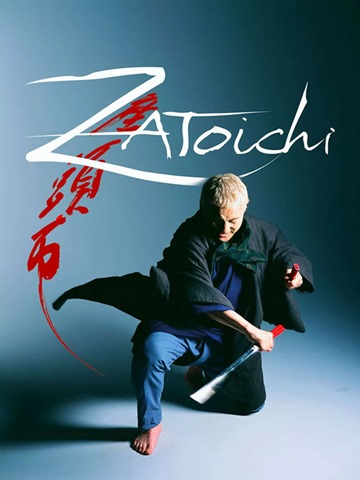 KinoSearch: 7.6
KinoSearch: 7.6
IMDb: 7.5
Genre: drama, thriller, action
Producer: Takeshi Kitano
Music: Keiichi Suzuki
Duration: 116 minutes
In this film, Takeshi Kitano reincarnated as the blind fighter Zatoichi from the series of novels by Kan Shimozawa, one of the most famous characters in the history of Japanese culture.
In the splashes of blood and in the midst of severed limbs scattering in different directions, he will administer justice without erasing his slight sarcastic half-smile from his face
6. When a Woman Climbs the Stairs (1960)
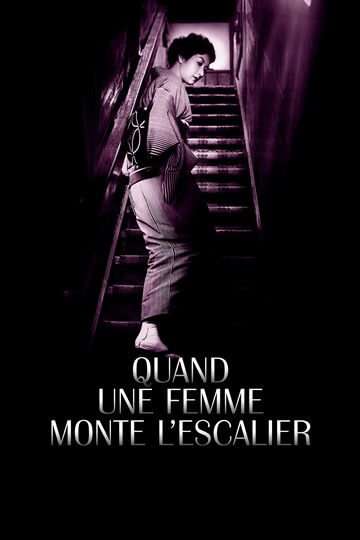 KinoSearch: 7.6
KinoSearch: 7.6
IMDb: 8.1
Genre: drama
Producer: Mikio Naruse
Music: Toshiro Mayuzumi
Duration: 111 minutes
This is the story of the life of the geisha Keiko, who must support her mother and brother, but can no longer rely on her youth. Exhausted by financial and family problems, she contemplates becoming a rich man's mistress in order to save herself the trouble.
The narrow, dangerous staircase that Keiko climbs every night is symbolic. Each time the heroine finds herself between a familiar past and an unknown future.
5. Demons (1971)
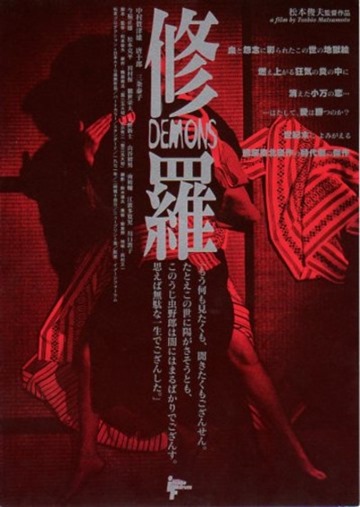 KinoSearch: 7.9
KinoSearch: 7.9
IMDb: 8.0
Genre: drama
Producer: Toshio Matsumoto
Music: Bunichi Nishimatsu
Duration: 134 minutes
This film is a portrait of the society and culture of feudal Japan. It starts off with a colorful setting sun, but the rest of it is shot in black and white.
Exiled for debts from the Asano clan, the Gengobe samurai becomes a ronin (a samurai without a master) and his only consolation is the geisha Koman. When the peasants collect money for Gengobe, the cunning geisha and her accomplices trick them out. Resentment and betrayal drive the warrior to the extreme, with the most sad consequences.
4. Rashomon (1950)
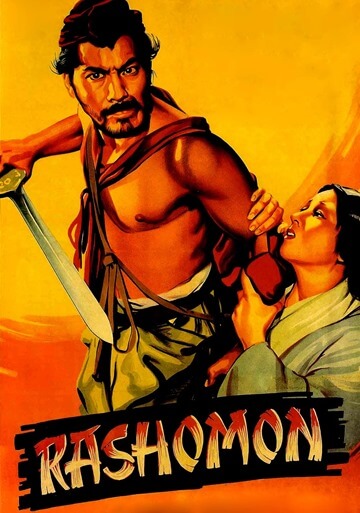 KinoSearch: 8.0
KinoSearch: 8.0
IMDb: 8.2
Genre: drama, crime, detective
Producer: Akira Kurosawa
Music: Fumio Hayasaka
Duration: 88 minutes
One of the most daring films of its era tells how the heinous atrocity was interpreted from different, subjective and conflicting points of view: the robber, the samurai, his wife, and the woodcutter. This poses questions to the viewer about human nature and what can be called truth.
The influence of the film on cinematography and culture in general is evidenced by the fact that the term "Rashomon effect" appeared. It means that the same event can be interpreted in different ways, demonstrating the extreme subjectivity of human memory and personality traits of the witness to the event.
3. Tokyo Tale (1953)
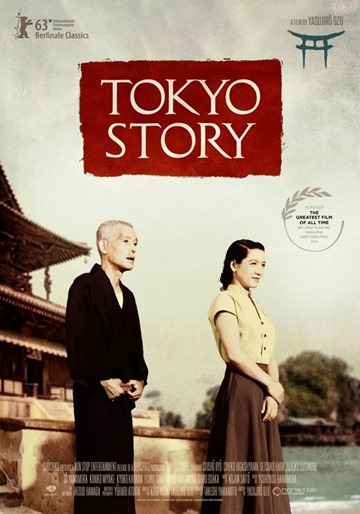 KinoSearch: 8.0
KinoSearch: 8.0
IMDb: 8.2
Genre: drama
Producer: Yasujiro Ozu
Music: Takanobu Saito
Duration: 136 minutes
The scenes that unfold in the "Tokyo Tale" are unhurried, like the main characters themselves. To achieve unusual static shots, the director positioned the camera very low, as if the operator was sitting on the floor. This technique was named "tatami level frame" and became Ozu's "calling card".
At the center of the story is an elderly couple who live in southwestern Japan. She travels to Tokyo to visit her grown children. But it turns out that they are too busy to find time to communicate with their parents.
The only family member who makes a significant effort to spend time with the elderly is their son's widow.
With this film, Ozu may have laid the foundation for many contemporary filmmakers who follow similar models of slowly evolving human drama. The Tokyo Story is often called the epitome of Japanese cinema.
2. The story of Hachiko (1987)
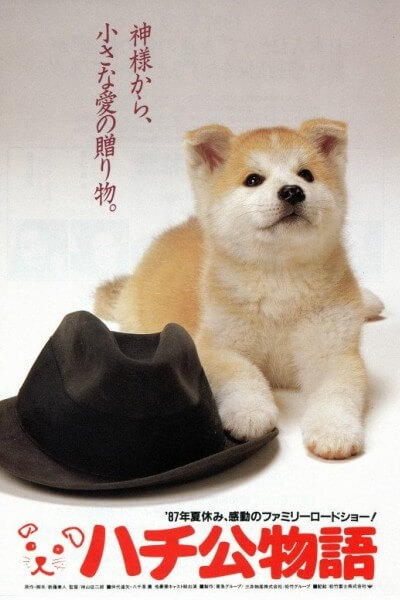
KinoSearch: 8.1
IMDb: 8.6
Genre: drama, adventure
Producer: Akira Kurosawa
Music: Fumio Hayasaka
Duration: 207 minutes
The story of a faithful dog named Hachiko made more than one thousand handkerchiefs wet.
And if you need a truly family film that will clearly show children such important concepts as loyalty, patience and affection between the owner and the pet, then there is no better option than “The Story of Hachiko”.
1. Seven Samurai (1954)
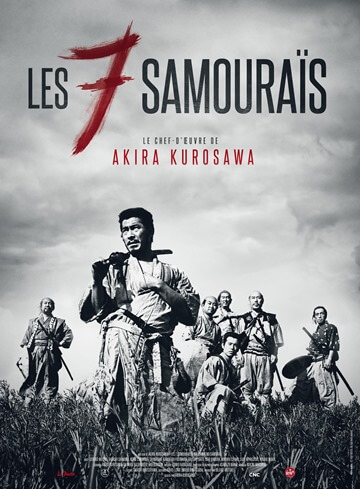 KinoSearch: 8.1
KinoSearch: 8.1
IMDb: 8.6
Genre: drama, adventure
Producer: Akira Kurosawa
Music: Fumio Hayasaka
Duration: 207 minutes
It is impossible to talk about the best Japanese films in the world without mentioning one of the most famous creations of Akira Kurosawa. It was in him that the (now banal) idea of gathering a group of heroes or antiheroes into a team in order to achieve a good goal was popularized.
But the "Seven Samurai" could never have been born, if not for Kurosawa's persistence. Over and over again, he convinced the Toho studio bosses to keep funding. The film was predicted to be a financial failure, and in the end it became one of the masterpieces of world cinema.

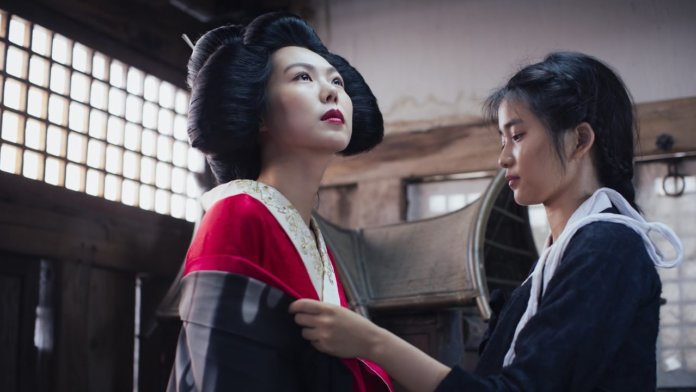
13 samurai
The Legend of the Dinosaur, The Death of Japan, The Gap in Time, Samurai Banners — 70-80s ...
And yet - on the topic of a pandemic with a brilliant cast and acting. The film is little-known, but will definitely not leave anyone indifferent - Virus 1980
Judo genius Handsome is also good.
Hachiko story poster in Korean
Thanks, fixed.
Comrades, where is the Taboo movie? Hasn't this picture become a classic of Japanese cinema? And there was also a film about the famous post-war Japanese writer who conceived a military coup, but was revealed and he was given the military honor to leave with dignity, performing the shipoku rite. About the cover of the blog with a frame from the Chinese painting Crouching Tiger-Hidden Dragon, we all had a lot of fun, thanks for such irony)
> And there was also a film about the famous post-war Japanese writer who
this is an american movie
And the Legend of Narayama?
Which of the two?
7 samurai is just right.
DUSK SAMURAI
Again with Kinopoisk rating?
When preparing the material, the data of the following sources were taken into account: Kinopoisk, IMDb, The Cinemaholic
and the title picture with a Chinese woman in national dress ... well, well ...
Thanks for the comment, corrected.